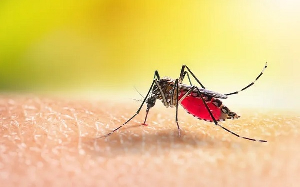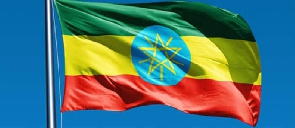- Home - News
- TWI News | TV
- Polls
- Cartoons
- Year In Review
- News Archive
- Crime & Punishment
- Politics
- Regional
- Editorial
- Health
- Ghanaians Abroad
- Tabloid
- Africa
- Religion
- Election 2020
- Coronavirus
- News Videos | TV
- Photo Archives
- News Headlines
- Press Release
- News Blogs
Health News of Wednesday, 17 July 2024
Source: starrfm.com.gh
Illegal mining areas vulnerable to dengue fever – Health Director
The Eastern Regional Director of Ghana Health Service, Dr. Winfred Ofosu, has issued a warning that mining communities are at a heightened risk of dengue fever due to stagnant water in abandoned pits breeding mosquitoes.
On July 14, the GHS announced an outbreak of dengue fever, also known as clinical malaria, in several districts of the Eastern Region, initially confirming nine cases.
However, two additional cases of dengue fever were confirmed on Monday in the region, bringing the total number of confirmed cases to 11.
These cases were identified from samples sent to the Noguchi Memorial Institute for Medical Research.
The cases have been recorded in Achiase, Akyemansa, Birim Central, Birim South, and Birim North—all areas heavily affected by illegal mining.
Currently, 57 more samples are being processed, and approximately 103 suspected cases are under management.
The Eastern Regional Health Directorate noted that illegal mining areas are at higher risk.
“The issue about galamsey and its impact, particularly where there is galamsey and there is no land reclamation, is that you have pits that are left and it is raining season and water collects in these pits, so these pits can serve as breeding sites for mosquitoes, which will actually increase the mosquito population. So what we will request is that those who do mining activities in these areas make sure that after they are done with the mining land is reclaimed so that no pits are left to collect water, which will request is that those who do mining activities in these areas to make sure that after they are done with the mining land is reclaimed so that no pits are left to collect water which will serve as breeding grounds for mosquitoes,” Dr. Winfred Ofosu said.
Dengue fever is a viral hemorrhagic fever transmitted by the Aedes aegypti mosquito. Symptoms include high fever, severe headache, pain behind the eyes, joint and muscle pain, rash, and sometimes bleeding from mucosal surfaces.
Severe cases can escalate to dengue hemorrhagic fever or dengue shock syndrome, which can be fatal without timely medical intervention.
The Regional Health Directorate has intensified its surveillance and rapid response activities.
A robust public awareness campaign is also being launched to educate communities on mosquito control and personal protection measures.
Dr. Winfred Ofosu emphasized the need for community action, urging residents to eliminate standing water around their homes to reduce mosquito breeding grounds.
He also encouraged the use of insect repellent and wearing long-sleeved shirts and pants, particularly during dawn and dusk when mosquito activity peaks.
Pregnant women and fetuses who are particularly vulnerable to the disease should take extra precautions.
Dr. Winfred Ofosu reassured the public that the situation is under control and urged residents to remain calm as efforts to manage and contain the outbreak continue.











